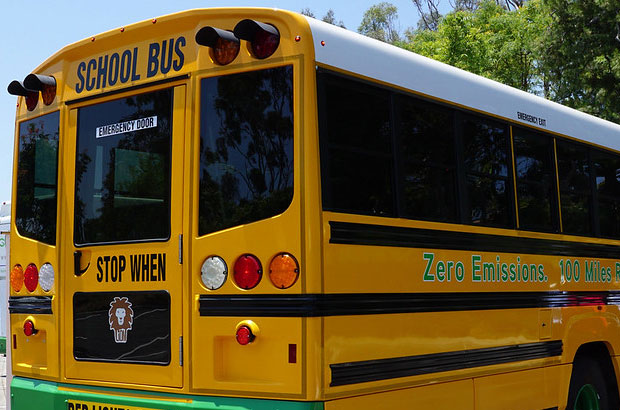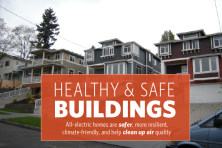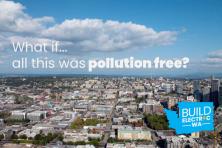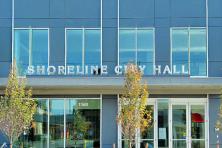This week, Seattle Public Schools became the first school district in Washington to make a bold commitment to mitigating climate change: the School Board unanimously resolved to transition to 100% clean and renewable energy by 2040 by eliminating all use of fossil fuels in district electricity, heating, cooling, cooking, and transportation.
The board also resolved immediately to halt constructing new buildings with fossil fuel infrastructure, to choose electric and other clean appliances for any major renovations and replacements, and to prioritize zero-emission vehicles where feasible for any new vehicle purchases. Co-sponsored by School Board Directors Zachary DeWolf and Lisa Rivera-Smith, the resolution was developed in partnership with a coalition of students, educators, parents, and community and advocacy groups, including Climate Solutions.
As a former Seattle Public Schools student myself, I’m proud of the board for making this change. When I attended Pathfinder K-8 in West Seattle in the 1990s, I was lucky enough to have teachers and a principal who worked to center the environment and sustainability in classroom instruction, and I credit their teaching for my own passion for climate justice. Such dedication needs to come not just from individual educators but through school curricula at all levels, so it’s also wonderful to see the district modeling sustainability in its own operations.
I’m also incredibly impressed by the students who have taken leadership on this issue. At this week’s School Board meeting, numerous students spoke powerfully about the importance of addressing climate change as a matter of environmental, racial, and social justice. The health impacts of fossil fuel combustion, which can cause respiratory, cardiovascular, and other neurological illness, are stark: an estimated 1,100 people in Washington die every year just from outdoor air pollution, while indoor air pollution from gas cooking appliances is largely untracked and unregulated.
As many people at the meeting noted, BIPOC (Black, Indigenous, and People of Color) and low-income students are disproportionately impacted by these effects – even the school bus depot contracted by Seattle Public Schools is located in the Duwamish Valley, causing increased vehicle emissions when those buses travel all over the city. Additionally, students riding in diesel-powered school buses are exposed to 23 to 46 times the cancer risk level considered significant under federal law from the exhaust.
Reducing the district’s use of fossil fuels will undoubtedly make a difference: research has shown that school districts that reduced diesel and improved indoor air quality and lighting in classrooms have seen improvements in both student health and academic performance. Seattle’s public school district is the largest in the state, so this resolution has the potential to make a big impact.
It’s been an exciting couple of weeks in Seattle – the City Council passed a measure to end most uses of fossil fuels in new commercial and large multifamily buildings, which will hopefully set the stage for future local policies that apply to all residential buildings. The School Board’s groundbreaking decision also reminds us how climate work and policy is linked at all different scales: the passage of a Clean Fuel Standard by the Washington legislature in 2021 could help provide funds for school districts to purchase and operate electric vehicles.
Let’s continue pushing for this resolution by Seattle Public Schools to serve as an example not only to other school districts, but to government bodies at all levels, so that we can protect students’ health and futures.





